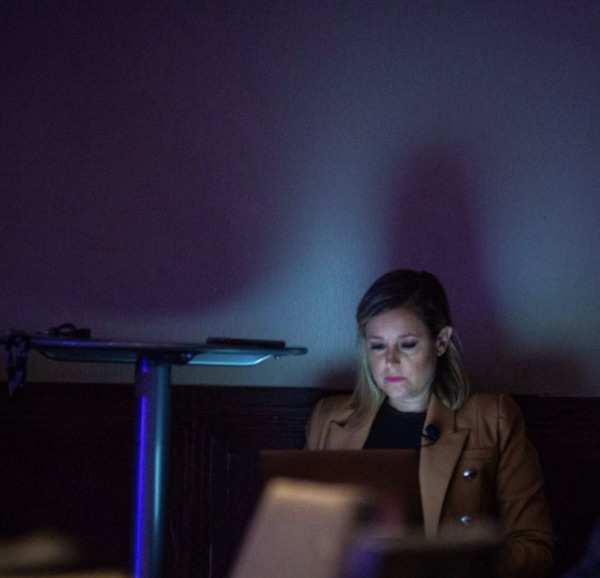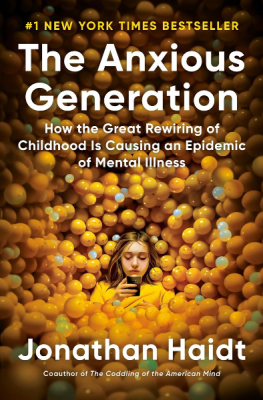Why and When Did Social Media Go Wrong?
Following my last post about how social media is bad for your health - an idea that I think most people would agree with - I also feel that social media has undeniably transformed communication and society in numerous ways. If you assume that is true, then you should ask why and when social media went wrong. This is a cross-post from my Weekends in Paradelle blog.
Despite lots of media attention about the negative effects of social media. it is still widely used. I started thinking about when social media became unhealthy. Any answer is subjective and complex and probably depends on individual factors such as personal experiences, societal norms, and technological advancements.While it offers many benefits, there have been turning points that have contributed to negative perceptions of social media.
Here’s my list of some turning points:
Privacy Concerns: As social media platforms evolved and became more integrated into people’s lives, concerns about privacy and data security emerged. High-profile incidents, such as the Cambridge Analytica scandal involving Facebook, raised awareness about the potential misuse of personal data collected by social media companies. This eroded trust among users and led to increased scrutiny of social media platforms’ privacy practices.
Spread of Misinformation and Fake News: Social media has facilitated the rapid spread of misinformation, rumors, and fake news. The ease of sharing content on platforms like Twitter, Facebook, and WhatsApp has made it challenging to verify the accuracy of information, leading to the proliferation of false narratives and conspiracy theories. This phenomenon has had serious consequences, including the exacerbation of social divisions, political polarization, and public health misinformation.
Cyberbullying and Online Harassment: Social media platforms have provided avenues for cyberbullying, harassment, and online abuse. The relative anonymity afforded by the internet, combined with the viral nature of social media, has enabled individuals to target others with hurtful or threatening behavior. This has had particularly harmful effects on young people, leading to mental health issues, social withdrawal, and even suicide in some cases.
Impact on Mental Health: Research has highlighted the negative effects of excessive social media use on mental health, including increased feelings of loneliness, depression, anxiety, and low self-esteem. Factors such as social comparison, cyberbullying, and the pressure to present a curated and idealized version of one’s life contribute to these negative outcomes. Additionally, the addictive nature of social media platforms, characterized by endless scrolling and notifications, can exacerbate feelings of stress and overwhelm.
Erosion of Civil Discourse: Social media was once seen as one way to “democratize” the web. But it has been criticized for contributing to the erosion of civil discourse and the rise of polarized and hostile online environments. Echo chambers and filter bubbles, where users are exposed primarily to viewpoints that align with their own, can reinforce existing biases and prevent constructive dialogue across ideological divides. This has implications for democracy, as it hampers informed decision-making and compromises the ability to find common ground on important societal issues.
So, when and why did social go wrong?
When I was teaching a graduate course in social media, we talked about its timeline history. That was 2016 and we were only talking about the negative effects as a fairly new point on that timeline. If I were teaching that today, I would need to add developments in the history of social media that mark shifts toward negative effects:
Here is a start on that list:
Proliferation of Platforms: Social media platforms began to gain popularity in the early 2000s with sites like MySpace and Friendster. As more platforms emerged and gained widespread adoption, the sheer volume of social interactions online increased dramatically.
Introduction of News Feeds: The introduction of news feeds, where users could see updates from friends and pages they followed in real-time, marked a significant shift in how people consumed content on social media. This change led to increased time spent on platforms and potentially unhealthy comparison behaviors.
Rise of Smartphones: The widespread adoption of smartphones made access to social media constant and ubiquitous. People could now engage with social media anytime, anywhere, blurring the boundaries between online and offline life.
Algorithmic Changes: Social media platforms began to implement algorithms to curate users’ feeds based on their interests and behaviors. While these algorithms aimed to increase engagement, they also contributed to echo chambers, filter bubbles, and the spread of misinformation.
Data Privacy Concerns: High-profile data breaches and scandals, such as the Cambridge Analytica scandal involving Facebook, highlighted how social media platforms could compromise users’ privacy and security. These revelations eroded trust in social media companies and raised concerns about the ethical implications of their practices.
Overall, while social media has brought about numerous positive advancements in communication and connectivity, its negative effects have become increasingly apparent over time. The exact point at which it became “unhealthy” is difficult to pinpoint, but these developments have collectively contributed to growing concerns about the impact of social media on individuals and society.



